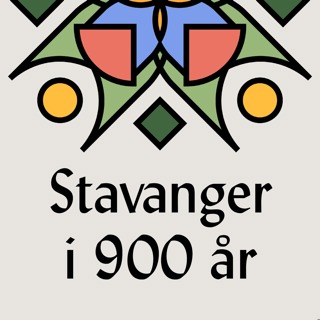
Introducing 'Leonardo: The Official Podcast'
Here on The Ancients, we think that you will love Leonardo, the official podcast accompanying the murder-mystery period drama starring Aidan Turner. Leonardo takes a deep dive behind the scenes with the cast and crew, as well as discovering more about Da Vinci’s art and life from the curators and historians who know him best.This new podcast, hosted by television presenter and Leonardo enthusiast Angellica Bell, can be found here http://smarturl.it/leonardopodcast or wherever you get your podcasts. Hosted on Acast. See acast.com/privacy for more information.
20 Apr 20216min

The Legacy of Thermopylae
Ever since its occurence in 480 BC, the Battle of Thermopylae has been the stuff of legend. Echoes of this battle, reportedly fought between a seven thousand strong Greek army and a Persian force of anywhere between 100 thousand and one million, can be found dotted across the literature and history of Ancient Greece and Rome. Professor Chris Carey from University College London has written a book on Thermopylae and, in this episode, he tells us how its shadow continues to the present day, where the battle and its heroes are referenced by those fighting for freedom, as well as in films and video games. Hosted on Acast. See acast.com/privacy for more information.
18 Apr 202148min

Edges of Empire: Chesters Roman Fort
Described as one of the most complete cavalry forts that survives in Britain, Chesters Roman Fort is also home to the best preserved military baths on the island. In this episode, English Heritage Curator Dr Frances McIntosh takes Tristan around the site, and explains how it can tell us more about everyday life on this far flung frontier. Hosted on Acast. See acast.com/privacy for more information.
15 Apr 202122min

Lessons from the Antonine Plague
A plague which affects people from across society, mass exodus from city centres and numerous opinions on how best to stay well ... all familiar to people today, but also to the people of the 2nd century AD. In this fascinating chat with Dr Nick Summerton, we explore the causes and effects of the Antonine Plague, the guides to healthy living from Galen, Marcus Aurelius and Aristides, and whether there are overlaps with the current situation. Nick is a practicing doctor and is the author of ‘Greco-Roman Medicine and What it Can Teach Us Today’, published by Pen & Sword. Hosted on Acast. See acast.com/privacy for more information.
11 Apr 202132min

Persia's Untapped Source: The Persepolis Fortification Texts
The Persepolis Fortification Tablets / Texts are the who’s who of the Ancient Achaemenid Empire, a unique insight into the administrative workings of this jurisdiction emerging from present day Iran. 30,000 of these clay tablets, inscribed in cuneiform, have so far been identified. Each forms a new piece of evidence for who the people of the Achaemenid Empire under Darius I were, where they were, what they did, and even what they ate. Tristan was joined by Professor Lloyd Llewellyn-Jones from Cardiff University to discuss how these texts have completely reshaped our understanding of this civilisation, and how the Ancient Persian perspective has demonstrated its remarkable networks, trade, administration and international travel.Lloyd's new book, out in April 2022, is called: 'Persians: The Age of the Great Kings'. Hosted on Acast. See acast.com/privacy for more information.
8 Apr 202153min

Jewish Burial at the Time of Jesus
According to the Gospels, Jesus died and was removed from the cross on the eve of the Jewish Sabbath (Friday afternoon), before his body was placed in the family tomb of Joseph of Arimathea. For 'three days and three nights', Jesus’s body was entombed. But do the accounts of his burial correlate with the archaeology? Do they accurately reflect the manner in which the Jews of ancient Jerusalem buried their dead?To talk through this extraordinary topic, from what we know about ancient Jewish burial customs to the Talpiot Tomb controversy, I was delighted to be re-joined by Professor Jodi Magness. Jodi has appeared on the Ancients once before, the star of our highly-popular two part podcast on Masada.You can view Jodi's library of books here: https://www.amazon.co.uk/Books-Jodi-Magness/s?rh=n%3A266239%2Cp_27%3AJodi+Magness Hosted on Acast. See acast.com/privacy for more information.
4 Apr 20211h 4min

The Xiongnu: History's First Nomadic Empire?
Between the 3rd century BC and the 1st century AD, the Xiongnu inhabited the area surrounding Mongolia. They influenced the later Hun Empire, and had connections with Ancient China and Persia, but what do we know about them? Bryan Miller has been investigating the society, hierarchy and expansion of the Xiongnu, and in this episode he shares his findings from the archaeology and historical documents with Tristan. Hosted on Acast. See acast.com/privacy for more information.
1 Apr 20211h

Music in Ancient Greece
Without recordings, and with notation and instruments long forgotten, how can we possibly know what music soundtracked Ancient Greek life? James Lloyd from the University of Reading has been studying Ancient Greek music, in particular its role in Ancient Sparta. In this episode James tells Tristan how it has been possible to recreate songs and instruments from antiquity. He takes us into the mythology connecting music to the Gods and Goddesses, and to nature, and he explains how the reaction to music in Ancient Greece may sometimes have been similar to the reaction to rock in the United States in the 20th century, and to drill in the UK today. Hosted on Acast. See acast.com/privacy for more information.
28 Mar 202147min




















